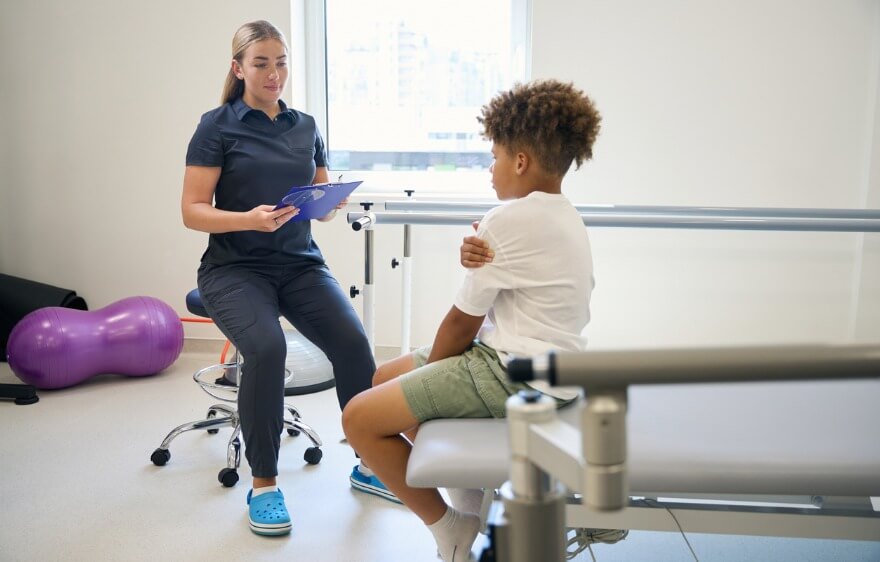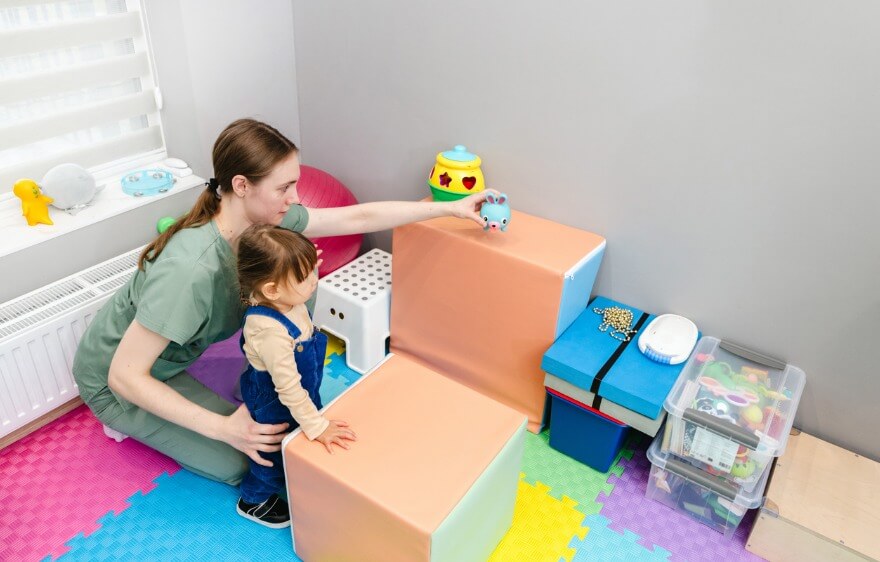Now that you know the kids on your caseload and your schedule is running (almost?) smoothly, the big question is: Are students making progress? Is your therapy working?
Data (all kinds – percentages, ratios, descriptions, tallies, feedback from parents and teachers!) should be an important part of the communication between you and your supervising SLP. In fact, sharing data and planning for data collection are perfect agenda items for a weekly meeting! Here are some ideas to consider in a conversation with your supervising SLP:
- Review the IEPs.
- Do you know which goal you’re working on?
- Is it clear how it is being measured, and how you will know when the student meets it? You may not need to track data for the whole session. Find out what’s most useful to your supervising SLP.
- What data are you tracking? It may not be realistic to take data on every goal for every child in every session. Here are some ideas for large groups or students with many goals:
- Rotate your data collection, focusing on a different child each session.
- Rotate through the goals you’re collecting data on. You may have an activity that targets multiple goals, but only collect data on one.
- Use chips, cards, or other objects to signify correct or incorrect responses so at the end of session you can just count them up!
- Have older students record their own data, then total it or even graph it!
Treatment Data vs Probe data – An important difference!
What kind of data are you taking? Different data for different purposes. At the very least, knowing and labeling what kind of data you are taking is important.
Treatment Data
A record of the child’s responses from within a treatment activity. This kind of data can be useful for giving your supervising SLP a picture of what went on in the session, but there are some disadvantages:
- Inconsistencies: A treatment activity is usually a supported environment where the student receives instruction through reminders, prompts, and cues. It can be difficult to document how much support a student receives, as “visual cues” or “minimal prompting” may differ from clinician to clinician.
- Usefulness: While treatment data can tell us how a student engages or participates in therapy, this kind of data does not necessarily show how the student is learning or if he or she can apply the new skills.
Probe Data
This data describes your student’s performance outside of treatment activities, or how the skills are generalizing. Typically, probe data is taken using novel materials or partners or in a novel context different from therapy. This could be a:
- Language sample taken as the child looks at a book you haven’t used in therapy before.
- Classroom observation. Are they following the teacher’s 2-step directions?
- Probe of /s/ words that aren’t used in your therapy activities.
- Tally of past tense verbs used as the student tells mom what they did in therapy today.
SLPAs and paraprofessionals should always operate within the scope defined by state and national licensing organizations and should only conduct allowable tasks under the supervision of a speech-language pathologist.





